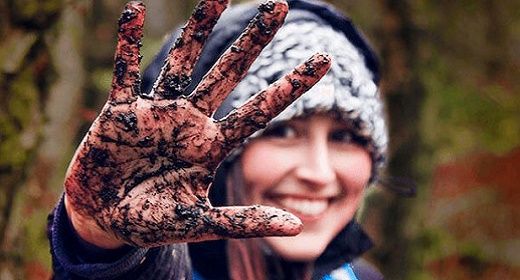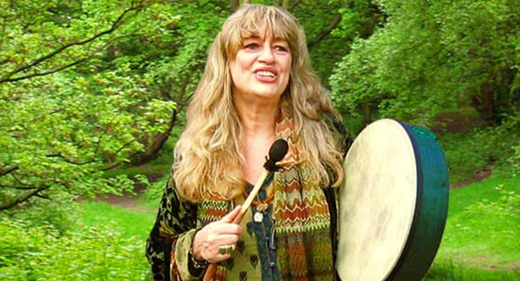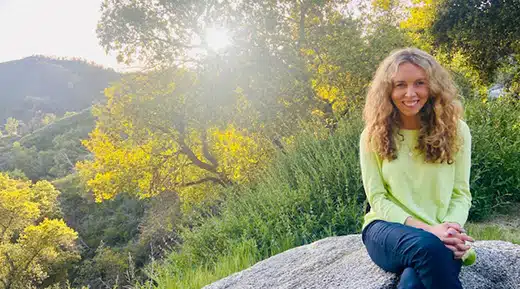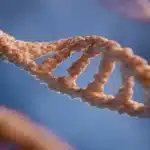by Tanja Taljaard: How you can Benefit from Antidepressant Microbes in soil…

A couple of years ago, a friend of mine was recovering from a serious illness. While reflecting on that time in her life, she mentioned how her garden, and gardening, played a big part in her own healing. Walking with her in her vibrant garden, I could see and feel how being surrounded by these beautiful plants and using homegrown, organic vegetables and herbs as medicine would be healing on many levels.
Most ardent gardeners will concur that the act of gardening can reduce stress and improve your mood. When you think about it, there are obvious benefits from tending a garden. You’re outside in the fresh air and Vitamin D producing sunshine (which helps regulate your serotonin levels), rather than being cooped up inside. But now science is proving through experiments that there are actual microorganism in the soil that affect our sense of wellbeing.
Playing in the Dirt
There are actual antidepressant microbes in soil. Mycobacterium vaccae is found in soil, and activates the release of brain serotonin. Serotonin and dopamine are two chemicals that boost our immune system and keep us happy. Both Dopamine and Serotonin are neurotransmitters, chemical messengers in the brain. Dopamine affects your emotions, movements and your sensations of pleasure and pain. In the brain, Serotonin regulates mood, social behaviour, libido, sleep, memory, and learning. Interestingly, 95% of our serotonin is manufactured in the intestines, not the brain; therefore some experts consider serotonin a hormone as well as a neurotransmitter. When you are gardening, M. vaccae is on your skin when you have your bare hands in the soil, you inhale it when you breathe, or it gets into your bloodstream through a little cut perhaps.
The effects of the soil bacteria were discovered accidently by oncologist Dr Mary O’Brien. She created a serum out of the M. vaccae bacteria and gave it to lung cancer patients to boost their immune system. She noticed that another effect of the serum was that the patients felt happier, more vital, and they suffered from less pain. Building on this, researchers Dorothy Matthews and Susan Jenks administered M. vaccae to mice and performed behavioural tests. Jenks says, “What our research suggests is that eating, touching and breathing a soil organism may be tied to the development of our immune system and nervous system.” They found that not only were the mice less anxious, they showed improved cognitive function by navigating a maze twice as fast as the ones that did not eat the bacterium. Matthews states “It is interesting to speculate that creating learning environments in schools that include time in the outdoors where M. vaccae is present may decrease anxiety and improve the ability to learn new tasks.”
Healthy Soil, Healthy Body
Mycobacterium vaccae is one of a vast spectrum of microbes that have been interacting and co-evolving with us. The well-being of our immune system and psychology is enhanced by frequent exposure, in our early childhood, to a diverse group of bacteria, fungi, protozoa, and worms. Our gastro-intestinal tract develops a hundred trillion microbes over time, determined in part by genetics and in part by what bacteria live in and on those around us. Prof Graham Rook refers to these creatures, which interact with us through our skin, lungs, and gut, as “Old Friends”. He says that deficiencies in microbial exposure could be the key to the recent increase in chronic health problems, including autoimmune diseases and depression. There is undeniable evidence that we need a diverse range of these organisms (found in animals, plants, soil, water and air) for the optimal functioning of our immune and nervous systems.
Green is good for you
Simply seeing or looking at plants, trees and nature impacts your mental, social and physical well-being. Researchers have found that even viewing representations of nature can help the body to heal. Roger S. Ulrich, PhD investigated the effect that views from windows had on patients recovering from surgery. He discovered that patients whose hospital rooms overlooked trees recovered better than those whose rooms overlooked brick walls. Patients who could see nature got out of the hospital faster, had fewer complications and required less pain medication than those forced to stare at a wall.
Gardening is a physical activity, sometimes quite a vigorous workout, as many gardeners would tell you. Gardens can create community. There’s also something magical about being part of the creative process, tending and nurturing seeds and seedlings into fully-grown plants. Permaculturist Robyn Francis talks about the Harvest High – the release of dopamine in the brain when we harvest products from the garden. “Researchers hypothesise that this response evolved over nearly 200,000 years of hunter gathering, that when food was found (gathered or hunted) a flush of dopamine released in the reward centre of the brain triggered a state of bliss or mild euphoria. The dopamine release can be triggered by sight (seeing a fruit or berry) and smell as well as by the action of actually plucking the fruit.”
Dr Daphne Miller has written extensively on soil health and the health of the people who eat from that soil.
Perhaps the best place for us each to begin is with our own backyard plot or window box. Planting a rainbow of seeds, avoiding garden chemicals, nourishing the soil with plant matter, digging with our hands and eating the bounty – while not guaranteed to replace a pharmaceutical grade antidepressant – is a wonderful chance to hang out with “Old Friends.”





















































